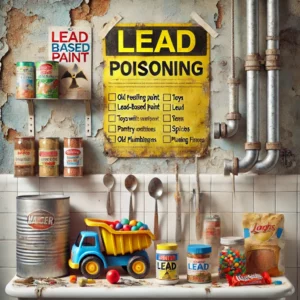Exploring the Presence of Heavy Metals in Chocolate
A recent study published in Frontiers in Nutrition has revealed alarming levels of heavy metals in many dark chocolate products sold across the United States. This research, conducted by scientists at George Washington University, highlights potential health risks associated with regular consumption of dark chocolate and raises questions about food safety standards in the confectionery industry.
5 Key Points
- Study examined over 70 dark chocolate products for heavy metals
- 43% of products exceeded acceptable lead levels
- 35% of products exceeded acceptable cadmium levels
- California’s Prop 65 was used as a safety standard for the study
- Researchers recommend limiting daily dark chocolate consumption
The Study: Unveiling Heavy Metal Content in Dark Chocolate
The comprehensive study analyzed over 70 dark chocolate products from major retailers such as Whole Foods Market, Amazon, and GNC. Researchers tested these products for heavy metals, specifically lead, cadmium, and arsenic. The findings were evaluated against the standards set by California’s Proposition 65, a 1986 law that establishes maximum allowable dose levels for heavy metals in food. This benchmark was chosen due to the lack of specific FDA limits on heavy metals in most foods.
The study’s results are concerning. A significant proportion of the tested products exceeded the acceptable levels of heavy metals defined by Prop 65. Specifically, 43% of the examined dark chocolate products contained lead levels above the acceptable threshold, while 35% surpassed the limits for cadmium. These findings underscore the need for greater scrutiny of heavy metal content in popular food products, particularly those consumed regularly by health-conscious individuals.
Understanding the Health Implications
The presence of heavy metals in food, especially at elevated levels, poses potential health risks to consumers. Lead and cadmium, the two metals found in excess in many of the tested chocolate products, are known to have detrimental effects on human health when accumulated in the body over time. Lead exposure can impact neurological development, particularly in children, while cadmium has been linked to kidney damage and is classified as a carcinogen at high levels.
Dr. Leigh Frame, the study’s lead author and director of integrative medicine at George Washington University School of Medicine and Health Sciences, emphasizes that while it’s nearly impossible to avoid heavy metals in our diet entirely, it’s crucial to limit excessive exposure. The human body can naturally excrete some heavy metals through sweat and urine, but high consumption levels can lead to accumulation and potential organ damage. This underscores the importance of moderation, especially in foods like dark chocolate that may contain higher concentrations of these metals.
Recommended Consumption Guidelines
In light of these findings, the researchers have provided guidelines for dark chocolate consumption to help minimize exposure to heavy metals. Dr. Frame recommends limiting intake to one ounce daily or consuming two ounces every other day. This approach allows individuals to enjoy dark chocolate in moderation while reducing the risk of excessive heavy metal exposure.
The study also highlights the importance of dietary diversity as a strategy to mitigate risk. By varying food choices and avoiding the daily consumption of large amounts of any single food item, individuals can help protect themselves from overexposure to specific substances, including heavy metals. This recommendation aligns with general nutritional advice that emphasizes the benefits of a diverse, balanced diet.
Industry Impact and Future Considerations
The findings of this study have significant implications for the chocolate industry and food safety regulations. While the FDA does not currently set specific limits for heavy metals in most foods, the prevalence of elevated levels in popular dark chocolate products may prompt a reevaluation of regulatory standards. The study’s use of California’s Prop 65 as a benchmark highlights the need for more comprehensive federal guidelines regarding heavy metal content in foods.
Interestingly, the study found that organic cocoa products were more likely to have higher levels of cadmium and lead. This counterintuitive finding challenges common assumptions about organic foods and underscores the complexity of food safety issues. It also emphasizes the need for consumers to look beyond labels and certifications when making informed dietary choices.
FAQ
Q: Are all dark chocolate products unsafe due to heavy metal content?
A: Not all products exceed safety thresholds, but the study found many concerning levels. Moderation is key.
Q: How can consumers reduce their exposure to heavy metals in chocolate?
A: Limit dark chocolate consumption to about one ounce daily and maintain a diverse diet.
Q: Does milk chocolate have the same heavy metal risks as dark chocolate?
A: Theoretically, milk chocolate should have lower risks due to less cocoa content, but further research is needed.
Q: Why were organic cocoa products found to have higher levels of heavy metals?
A: The reasons are unclear, but it highlights that “organic” doesn’t necessarily mean free from all contaminants.
Q: What actions are the chocolate industry taking in response to these findings?
A: The study may prompt an industry-wide reassessment of production processes and increased testing for heavy metals.
Citations:
Syal, A. (2024, July 31). Heavy metals, including lead, found in many dark chocolate bars, research shows. NBC News. https://www.nbcnews.com/health/health-news/heavy-metals-lead-found-many-dark-chocolate-bars-rcna163516







